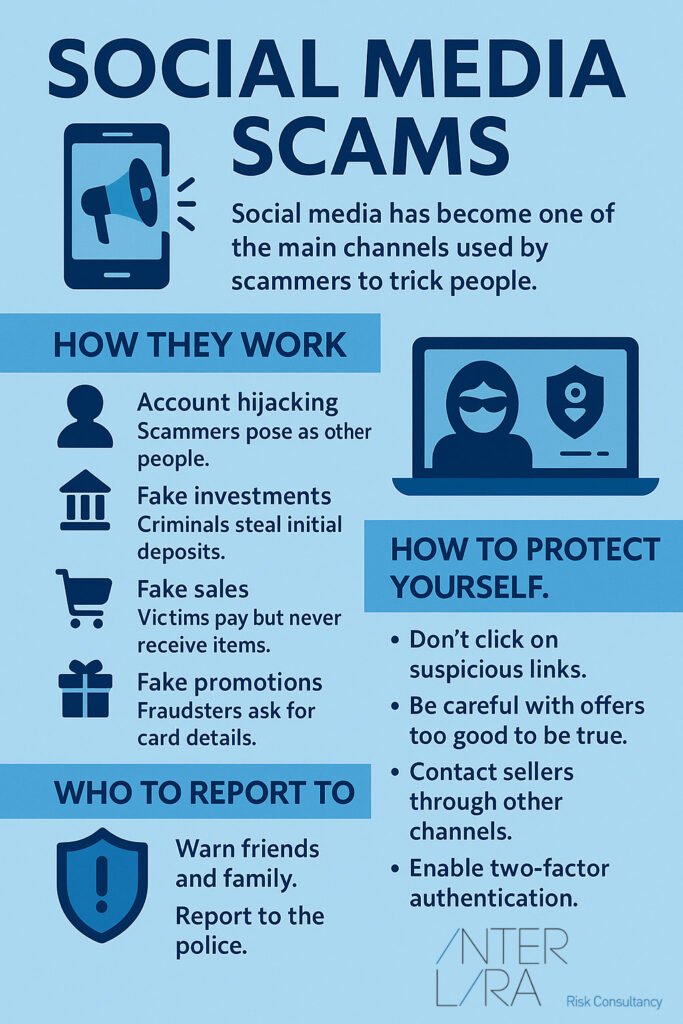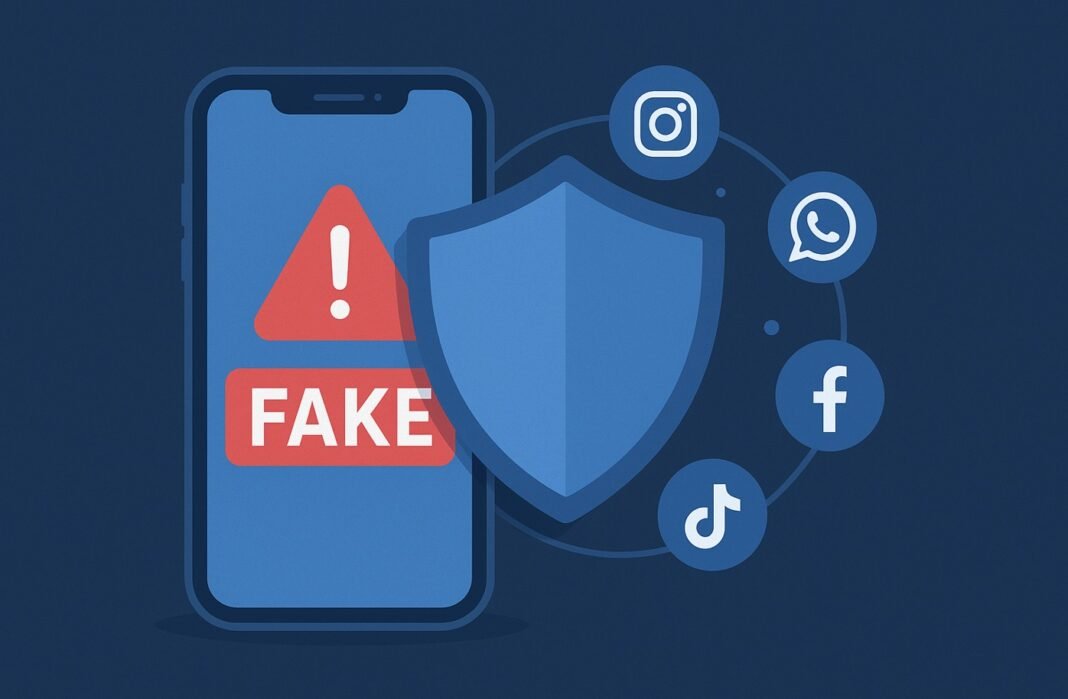Online scams have become increasingly common, demanding greater attention to the links and online content we interact with daily. Cybercriminals are constantly creating new methods to deceive people for financial gain, ranging from falsified payment receipts to fake technician impersonations. In Brazil, around 71% of the population has already fallen victim to this type of crime, which shows the need for caution when clicking on links in WhatsApp messages, emails, or SMS, as well as avoiding sharing personal information with strangers. To reduce risks, it is essential to understand how these scams work, recognize their main types, learn what to do if you are targeted, and adopt preventive measures to protect your data and avoid financial losses.
This article is part of a series on scams and frauds. You can read the other texts here.
2. Social Media Scams
Social media has become one of the main channels used by scammers to trick people. Criminals exploit the trust built on these platforms to steal money, personal information, or even take over accounts. Among the most common scams are “fake sales”, “account hijacking”, “fake investments”, and “fake promotions” that promise quick financial returns.
– How They Work
- Account Hijacking: Criminals hack into social media profiles or use stolen photos to impersonate someone, then contact friends and family asking for money. They often create situations of urgency, such as a sudden emergency or financial problem, to pressure victims into quick decisions.
- Fake Investments: Scammers promise to multiply the victim’s money if they transfer an initial deposit. Once the payment is made, the criminal disappears.
- Fake Sales: Fraudsters advertise products on personal profiles or fake store accounts. Victims pay in advance but never receive the product.
- Fake Promotions: On platforms like Instagram and TikTok, scammers create fake giveaways or promotions, asking for Pix or card details to “validate” participation. These profiles often mimic well-known brands.
– How to Protect Yourself
- Don’t click on suspicious links, even if they come from acquaintances—always confirm the source.
- Be careful with offers that seem too good to be true, such as products with unrealistic discounts or promises of easy money.
- Contact sellers through other channels to verify if an account has been hacked.
- Enable two-factor authentication on all social media apps and keep them updated.
- On WhatsApp, protect your account with a password and adjust privacy settings so your profile information isn’t visible to strangers.
– Who to Report To
If you are a victim, notify friends and family immediately so they don’t fall for the same scam. Report the fake profile or content to the platform and register a police report with the Civil Police, including all available information about the perpetrator.





